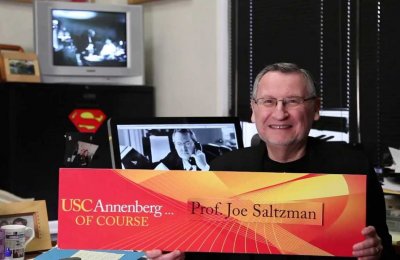Journalism professor Sandy Tolan crafted a multimedia story for public radio's Marketplace about child labor in Bangladesh, giving an international voice to a 13-year-old boy named Ismael "Babu" Hussein, who risks his life for the equivalent of $2.20 per day breaking down retired tankers and cargo ships.
"When their masters get tired, Babu and his fellow child laborers often handle the blowtorches on their own, frequently without goggles, risking serious injury or blindness," Tolan wrote in the 'Reporters Notebook' section of the piece. "Some are forced to climb tall rope ladders to the ships' highest points to retrieve items, risking death if they slip. And all the children are on constant lookout for falling metal plates and rods, which have killed many a worker before them. Lately, Babu has been having nightmares of falling steel, or of being thrown into melting iron by an angry boss."
Human rights groups have long been fighting for worker and environmental protection, but the situation is complicated because of the high poverty rate. A court-ordered temporary shutdown of the shipyards created controversy in March 2009.
"The shutdown angered many worker families like Babu's, for whom bad work is better than none," Tolan said. "An estimated 10,000 shipbreaking laborers and their families, concerned for their jobs, protested the High Court ruling. The High Court also ruled that ships would no longer be able to enter Bangladesh's waters without first 'pre-cleaning' their toxic wastes. This was a huge victory for shipbreaking watchdogs, but given the country's history of strong laws and weak enforcement, advocates say it isn't enough."






